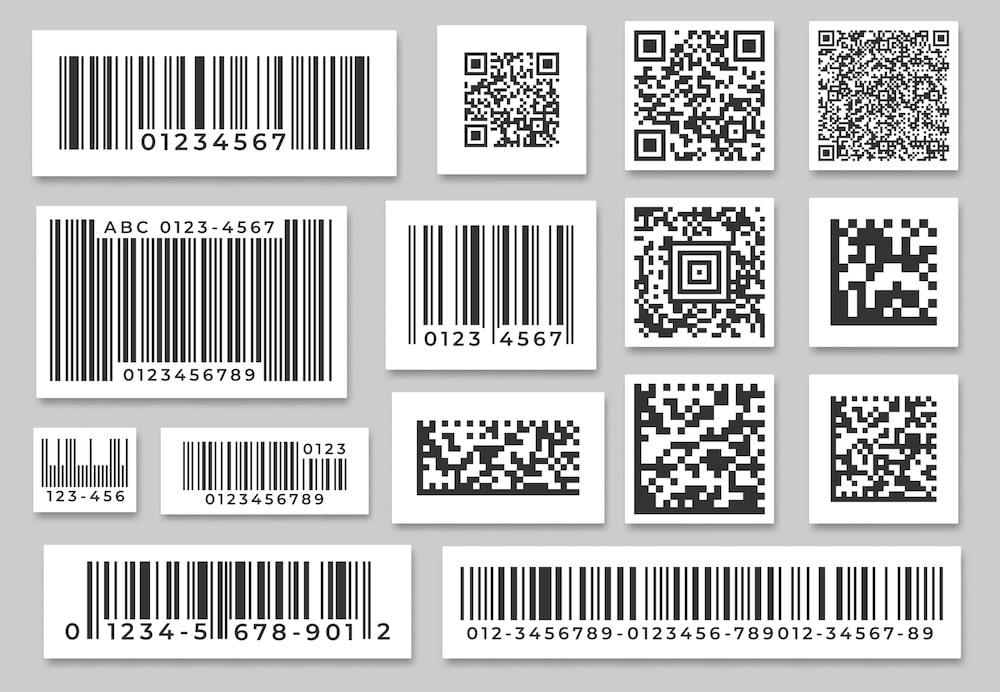
In the multifaceted world of beverage distribution operations, efficiency, accuracy, and compliance are essential components of success. Whether you’re a beverage distributor specializing in a wide range of products or a beer distributor focusing on craft brews, the challenges are unique and complex. This guide explores the critical aspects of beverage distribution operations and the role of a Warehouse Management System (WMS) like Logimax in optimizing these operations.
The Importance of Inventory Management in Beverage Distribution Operations
For beverage distributors, inventory management is more than a logistical task; it’s the heartbeat of the operation. Every distribution warehouse manager knows the struggle of aligning product availability with fluctuating demand. Whether it’s the seasonal rush for a popular soft drink or the sudden spike in demand for a newly launched craft beer, the challenges are real and ever-present.
Perhaps you’ve experienced the frustration of a stockout just when sales were peaking, or the financial strain of overstocking a product that didn’t sell as expected. These are common scenarios in the beverage distribution industry, and they underscore the importance of precise inventory management.
Effective inventory management is a strategic process that requires foresight, agility, and a deep understanding of the market. Let’s delve into the key components of inventory management in the beverage industry, exploring strategies that can turn these challenges into opportunities:
Understanding Demand Patterns
Analyzing historical sales data helps beverage distributors accurately predict future demand. Recognizing patterns, such as seasonal spikes in sales of certain beverages or craft beers, allows for proactive planning and reduces the risk of stockouts. Utilizing advanced analytics tools, beverage and beer distributors can uncover hidden trends, forecast demand with greater accuracy, and align their inventory strategies accordingly.
This data-driven approach supports agile decision-making, enabling distributors to respond to market changes and customer preferences.
Implementing Real-Time Tracking
Real-time tracking technology provides immediate visibility into inventory levels, supporting efficient warehouse operations for both beverage and beer distributors while minimizing delays and errors. By integrating real-time tracking with mobile devices, warehouse staff can access up-to-the-minute information on stock locations, quantities, and movements.
This not only enhances operational efficiency but also improves customer service by providing accurate delivery timelines and inventory availability. In an industry where timing is crucial, real-time tracking is an essential tool for success.
Integrating Systems for Consistency
Integration across various systems ensures that inventory data is consistent and accessible, supporting a cohesive strategy that enhances overall efficiency for beverage distributors. This goes beyond mere coordination between different software; it’s about creating a unified ecosystem where information flows seamlessly from procurement to sales.
Integration can include connecting ERP systems with warehouse management platforms, linking sales data with inventory control, and synchronizing with supplier systems. This holistic approach ensures that all stakeholders have access to accurate and consistent information, reducing errors, and streamlining operations.

Temperature Control: Ensuring Quality and Compliance
Temperature control in beverage distribution is an art and a science that goes far beyond mere cooling. Every beverage, wine & spirits, and beer distributor knows that the quality, taste, and safety of the products hinge on maintaining the perfect temperature. Whether it’s keeping a craft beer at the ideal chill for preserving its unique flavor profile or ensuring that a fine wine is stored at the precise temperature to mature gracefully, the stakes are high.
With these considerations in mind, let’s explore the key aspects of temperature control in beverage distribution:
Utilizing Advanced Monitoring Systems
Investing in advanced sensors ensures that products are stored under optimal conditions. Continuous monitoring helps beverage distributors preserve the essence of the beverage, reflecting a commitment to quality.
For example, utilizing IoT-enabled temperature sensors can provide real-time data and analytics, allowing for immediate adjustments and trend analysis. This technology not only safeguards the product but also contributes to data-driven decision-making.
Implementing Automated Alerts
Automated alerts enable immediate action to temperature changes, preventing spoilage. This proactive approach supports quality control for beer distributors, maintaining the integrity of the products. Implementing a system that sends alerts to both warehouse managers and floor staff ensures that any temperature deviations are addressed promptly.
Whether it’s a cooling system failure or a door left ajar, automated alerts act as an essential safety net, protecting both product quality and regulatory compliance.
Exploring Tailored Cold Storage Solutions
Cold storage solutions must be tailored to the specific needs of beverage distribution. Factors like product type, shelf life, and regional climate must be considered by beverage and beer distributors to ensure precise temperature control. Collaborating with cold storage experts to design solutions that cater to the unique requirements of different beverages can lead to more efficient energy use and better product preservation.
For instance, a craft beer might require a different temperature range and humidity level compared to a mass-produced lager. Tailoring cold storage solutions to these specific needs ensures that each product is stored under its ideal conditions.
Regulatory Compliance: Building Trust and Credibility
Regulatory compliance is more than a legal obligation in the beverage distribution industry; it’s a complex and multifaceted aspect that builds trust, ensures that products meet the highest standards, and reflects a commitment to excellence.
Navigating the maze of regulations, from local health codes to international trade agreements, requires diligence, expertise, and a proactive approach. Let’s examine the critical elements of regulatory compliance for beverage and beer distributors:
Staying Informed About Regulations
The regulatory landscape is constantly evolving, and staying informed is a continuous challenge. Just consider the burgeoning cannabis beverage industry in many U.S. states. Beverage and beer distributors must actively engage with industry groups, attend workshops, and subscribe to regulatory newsletters to ensure up-to-date knowledge of local, national, and international standards. Regular training sessions for staff and collaboration with legal experts can also enhance compliance readiness.
Utilizing Technology for Accurate Reporting
Automated reporting tools simplify the compliance process, enhancing accuracy and efficiency. Consistent and transparent reporting strengthens relationships with regulators and supports industry credibility. Leveraging software that can generate required reports, track changes in regulations, and even alert you to upcoming compliance deadlines can be a game-changer for beverage distributors.
Adapting to Evolving Regulations
Regulations change, and the ability to adapt is crucial. Customized approaches and flexible solutions provide the agility needed to respond to new regulations, maintain compliance, and have a competitive edge. This might include regular audits, working closely with regulatory bodies, and implementing adaptable compliance management systems that can be updated as regulations evolve.
Building a Culture of Compliance
Compliance is not just a task for the legal department; it’s a company-wide responsibility. Building a culture of compliance means integrating regulatory awareness and adherence into every aspect of the business. From procurement to sales, every team member should understand the importance of compliance and their role in maintaining it. Regular training, clear communication, and leadership commitment are key to fostering this culture.
Collaborating with Suppliers and Partners
Compliance extends beyond the walls of the distributor’s warehouse. Collaborating with suppliers, partners, and even customers to ensure alignment with regulatory standards is essential. This collaboration can include sharing best practices, conducting joint audits, and creating shared compliance goals. It ensures that the entire supply chain operates within the legal framework, minimizing risks, and enhancing trust.
How Logimax Can Enhance Beverage Distribution Operations
In the beverage and beer distribution industry, where precision, efficiency, and compliance are paramount, Logimax WMS stands as a tailored solution designed to meet these unique challenges.
Here’s how Logimax can be a strategic partner in enhancing beverage distribution:
- Streamlining Inventory Management: Logimax WMS provides real-time insights into stock levels and demand patterns, optimizing warehouse space and minimizing stockouts and overstocking.
- Ensuring Temperature Control and Quality: With automated alerts and integration with cold storage solutions, Logimax WMS ensures that the quality of beverages is maintained through precise temperature control.
- Simplifying Regulatory Compliance: Logimax’s automated reporting tools and adaptable compliance management systems make navigating the regulatory landscape more manageable, supporting trust and credibility.
- Enhancing Collaboration and Integration: Logimax fosters collaboration across the supply chain and ensures seamless data flow between systems, enhancing efficiency and alignment.
- Providing Actionable Insights and Analytics: Logimax’s analytics and reporting capabilities offer actionable insights into operations, supporting informed decision-making and trend identification.
Conclusion
Optimizing beverage distribution requires a multifaceted approach. From inventory management and temperature control to regulatory compliance, each aspect plays a vital role. Leveraging tools like Logimax’s WMS can significantly enhance these critical areas for beverage and beer distributors, leading to increased operational efficiency and growth.
Want to learn more about how Logimax can optimize your beverage distribution? Contact us today for a detailed overview and demonstration.




